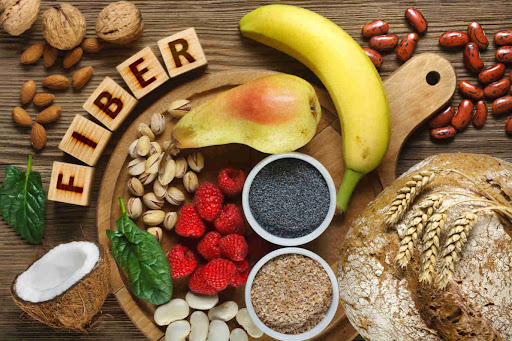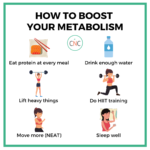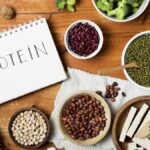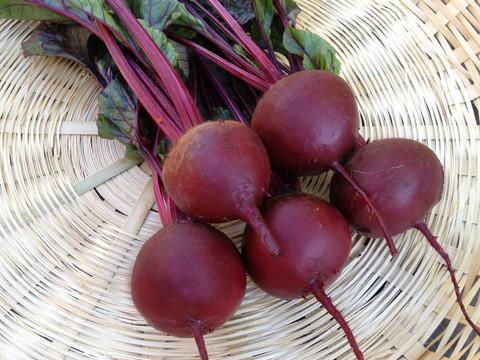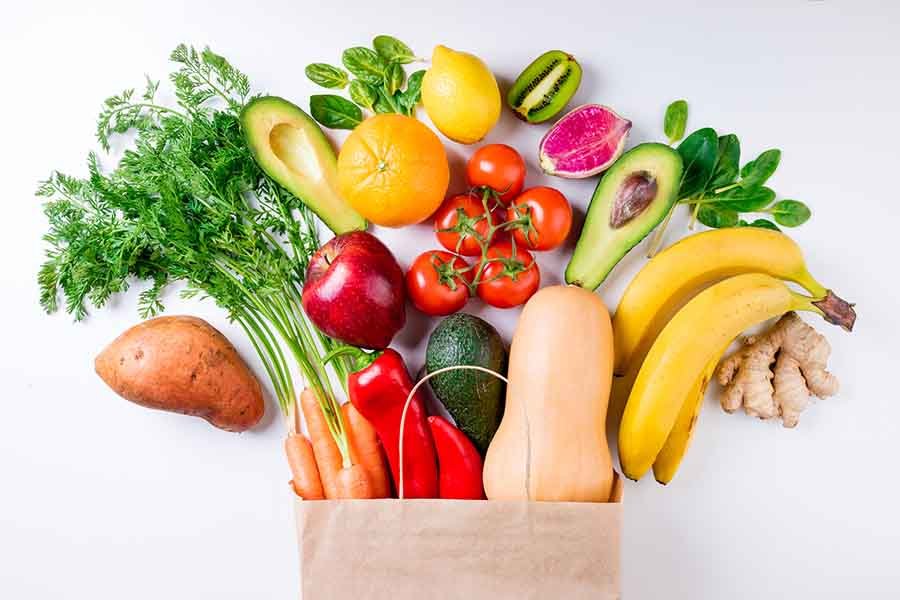KNOWING WHEN AND HOW TO INCREASE FIBER INTAKE
Knowing how to increase fiber intake shows how much you care about your health and not just to eat whatsoever that comes your way. Fiber is one the substances that can be found in plants. A component of plant based foods which is necessary for proper functioning of the intestine.
There is a type of carbohydrate we eat which is known as dietary fiber, consuming a significant amount of fiber in the right proportion has a lot of health benefits and this is the reason why we should know how to increase fiber intake.
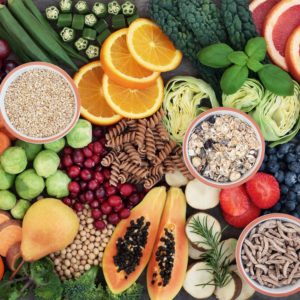
When you eat fiber-rich foods, you will definitely benefit from it because it helps aid digestion and promote nutrients absorption.
Studies have shown that foods highly rich in fiber can treat certain ailments or diseases such as diverticulitis, constipation and irritable bowel syndrome. Again, dietary fiber helps bring down the risk of stroke, certain cancers, coronary heart disease and type 2 diabetes. It is also capable of lowering cholesterol level.
Benefits of Fiber Intake
As stated earlier, fiber as a plant based food offers the following characteristics:
- It increases fecal volume because it retains water
- It is fermented by bacterial flora which is at the colon. It is not acted upon by digestive enzymes like other carbohydrates, fats and protein.
- Eating fiber in the right proportion help prevent diseases such as colon cancer, constipation, excess cholesterol, diverticulosis and diabetes.
YOU MAY LIKE: Eucalyptus Oil Uses
Increase eating of legumes and vegetables
Getting to know how to increase fiber intake involves knowing when to increase the consumption of vegetables and legumes.
Cabbage, onions, leeks, asparagus and other vegetables as well as legumes contain oligosaccharides which is quite different from other forms of fiber. With oligosaccharides, population of bifidobacteria which are quite beneficial are increased in the intestinal flora.
According to heathline, they also help prevent constipation and also fight against colon cancer. They even reduce the cholesterol levels.
Recommended Fiber Intake
The following shows the recommended amount of fiber one should get from a
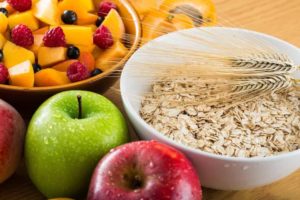
daily diet and this has to with one’s gender and age.
- Men at 50 years of age and those that are younger should eat at least 37 grams of fiber on a daily. Men above 50 years of age are recommended to get at least 29 grams of fiber per day
- Women at 50 years of age and those who happened to be younger should eat at least 27 grams of fiber on a daily. Women above 50 years of age are recommended to get at least 20 grams of fiber per day.
SEE ALSO: Foods That Promote Cancer
Doing the following tends to change and increase your fiber intake in your diet
- Consume about 2 cups of fruits combined with 2 ½ cups of vegetables every day which will involve the following:
- Spinach = ½ cup
- Artichoke = 1
- Dates of figs = ¼ cup
- Sweet potato = 1
- Green peas = ½ cup
- Small pear = 1
- Blackberries of blueberries = ½ cup
- Prunes = ½ cup
- Orange = 1 (medium)
- Apple = 1 (medium)
- Consume Supplements that rich in fiber or bran
The recommended method of consumption is to eat them in their natural state which forms part of whole grain bread but it still be consumed in form of supplements so long that it doesn’t exceed 30g on a daily. The bran provides at least 13 g of pure fibers.
- Eat whole grain bread in place of white bread
- Eat fruits including all of its pulp and not only the juice. This is because fruit juice virtually contain no fiber. The fiber is found in the pulp.
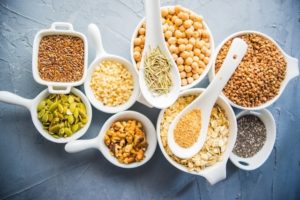 In essence, a whole grain or whole grain bread together with few prunes and some pieces of some fruits (fresh fruits) is likely to provide about 27 grams of fiber which is needed per day.
In essence, a whole grain or whole grain bread together with few prunes and some pieces of some fruits (fresh fruits) is likely to provide about 27 grams of fiber which is needed per day.
- Ensure you notice what nutrition fact labels are all about especially for the portion of dietary fiber. Getting 5 grams per serving is recommended.
- Add ¼ cup of wheat bran (miller’s bran) to foods. You can put it in cooked cereal, applesauce, or meat loaf.
- You may consume ½ cup of beans (cooked), such as, kidney, navy, black, lima, pinto or white beans.
The table below shows foods and the amount or quantity of fiber they contain. This based on 100 grams of raw edible portion of each and every one of them.
| s/n | Food | Quantity |
| 1. | Olive oil | 0 g |
| 2. | White sugar | 0 g |
| 3. | Brown sugar | 0 g |
| 4. | Honey | 0.200 g |
| 5. | Cucumber | 0.800 g |
| 6. | Potato | 1.60 g |
| 7. | Red Tomato | 1.10 g |
| 8. | White Bread | 2.30 g |
| 9. | Apple | 2.70 g |
| 10. | Cauliflower | 2.50 g |
| 11. | Peas | 5.10 g |
| 12. | Whole-grain rice | 3.40 g |
| 13. | Artichoke | 5.40 g |
| 14. | Raspberry | 6.80 g |
| 15. | Date | 7.50 g |
| 16. | Prune | 7.10 g |
| 17. | Oats | 10.6 g |
| 18. | Almond | 10.9 g |
| 19. | Light rye flour | 14.6 g |
| 20. | Whole-wheat flour | 12.2 g |
| 21 | Barley | 17.3 g |
| 22. | Bran | 42.8 g |
| 23. | Lentils | 30.5 g |
| 24. | Milk | 0 g |
| 25. | Egg | 0 g |
| 26. | Fish | 0 g |
| 27. | Dairy products | 0 g |
| 28. | Shellfish | 0 g |
| 29. | Meat | 0 g |
| 30 | Meat products | 0 g |
READ ALSO: Benefits of Boldo Tea
Consider this:
Do not add too much fiber to your diet at a go and if add too much of it to your diet, you will get symptoms such cramping, gas, or bloating. It is recommended that you increase fiber intake slowly and as you increase fiber intake, try to drink more water.
A recap
Functions of Fiber and why you should increase intake of it are listed below.
- It helps improve diabetes
- It also protects the intestinal mucosa. This is one of the reasons you should increase fiber intake.
- It helps in avoidance of excess cholesterol
- With fiber, the risk of constipation is brought low
Again, water soluble fiber is found in oat bran, fruit seeds and flax. Various substances such as mucilage, pectin, gums help form them while water insoluble fiber is found in grain bran and formed by cellulose, hemicellulose which give them woody steadiness.
NOTE:
Deficiency symptoms: There’s possibility of greater risk of cancer, diverticulosis, constipation etc.
Fiber Excess consequences: The absorption of zinc, iron and other minerals may reduce
Fiber loss during food processing: When grains are refined, they lose about 95% of their fiber.
For more blog post, read here
CHECK OUT THE ARTICLES BELOW
Health Benefits of Blueberries
How To Reduce Weight Home Remedies

A graduate of Computer Science and Information Management Technology. Diploma – Caregiving, Certificates – Dementia and Diabetes Awareness and Management. A researcher, blogger, songwriter, singer and acoustic guitarist. Born in an environment where natural talents such as healing are imparted at our natural birth. This natural talents of healing is the result of our genetic inheritance and the training from family environment.

